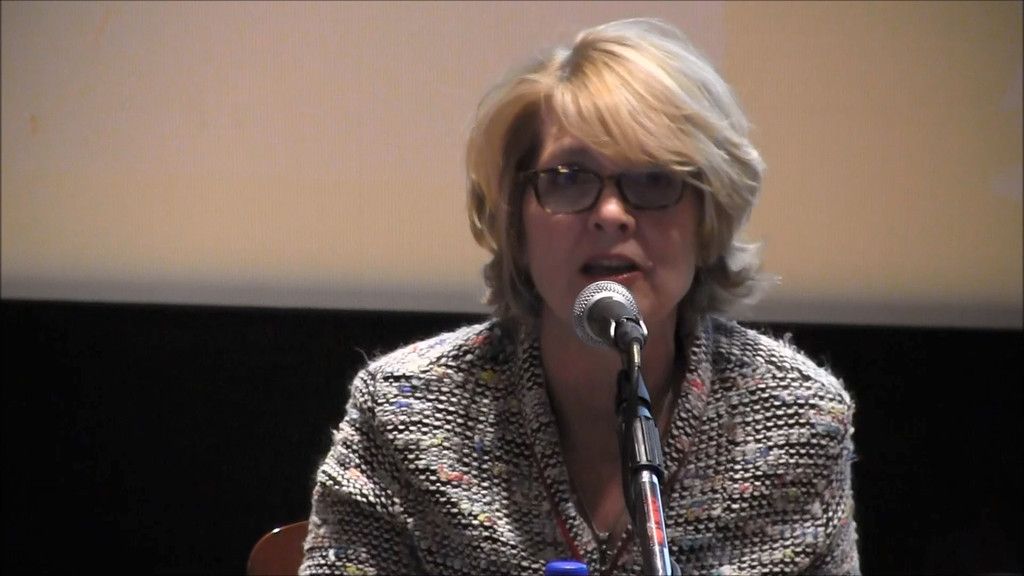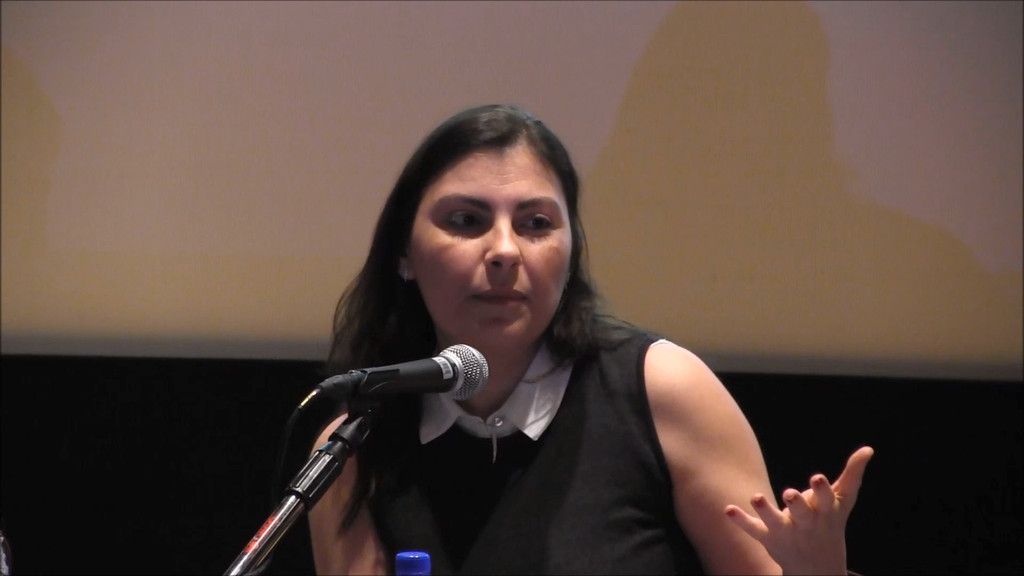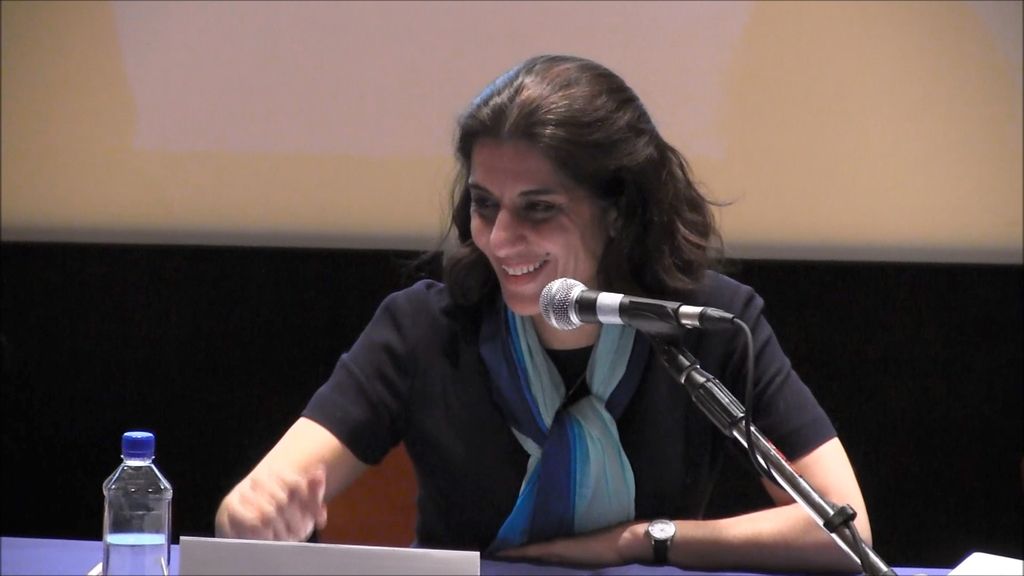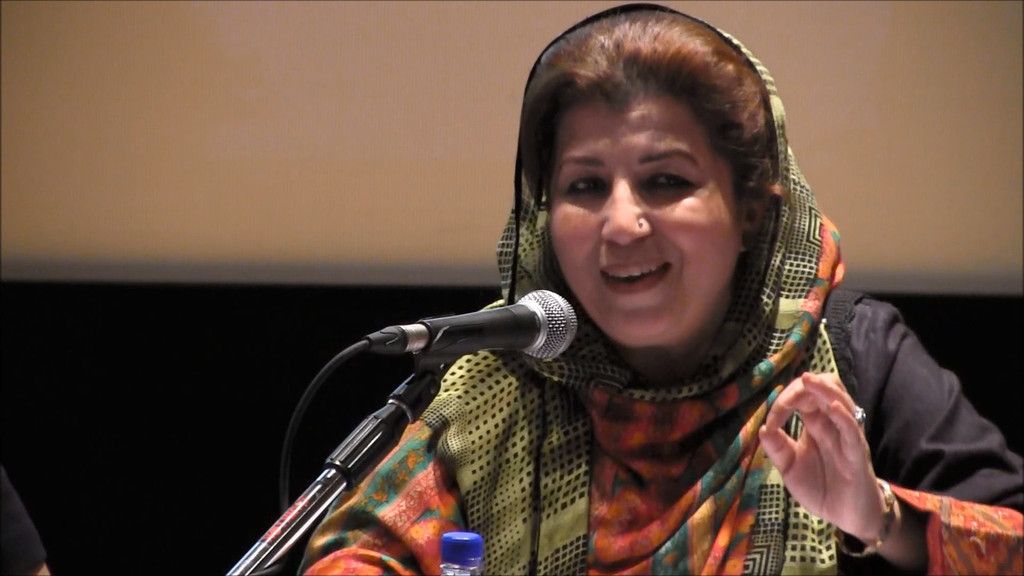When reporting on an international crisis, it’s critical for journalists to seek out the voices of women.
Women are often the first to bear the brunt of rising extremism and militarism, and they are also in a unique position to detect and prevent radicalization among their own children. But their voices are too often lacking in stories from foreign media, speakers said during a March 16 forum to highlight the work of women activists in North Africa and the Middle East.
The OPC co-hosted the panel with Peace is Loud, the Norwegian Foreign Ministry and International Civil Action Network (ICAN).
Abigail Disney, founder of Peace is Loud, told the capacity crowd that militarism and extremism are the two main challenges to women’s lives around the world, and therefore “we are more in need now than we have ever been for women’s voices.”
Filmmaker Gini Reticker said she wants to see women portrayed not merely as victims of violence, but as active agents against extremism.
“Women, in fact, are in leadership positions in a lot of the human rights organizations that are working still on the ground, and I don’t feel like their stories are covered,” she said.

Egyptian journalist Rana Allam, former Editor-in-Chief at the English-language Daily News Egypt, said that many women feel deceived by the revolution they fought for, which has excluded women as polygamy and repressive laws increase.
OPC Board of Governors member Rukmini Callimachi of The New York Times, who moderated the forum, asked Allam if she thought international media is covering the challenges of women in Egypt properly.
“Absolutely not,” she said. American media tends to focus on women’s issues from an American perspective, and is “concerned with what we wear or whether we’re being harassed or not. Our problems are much bigger,” Allam said. “Our problems are violence at home.” Nearly every married woman she knows was beaten by her
husband at some point, she added.

After a recent crackdown on non-governmental organizations, Allam said, “we really don’t have civil society working for women anymore.” Only a few such organizations are operating, but they are under legal restrictions and lack support.
ICAN co-founder Sanam Anderlini agreed that foreign journalists should seek out more women as sources.
“Ask the women about what’s going on in their countries. They will give you a perspective which is deep in terms of the social context, but directly links it to the political, to the economic, and gives you an understanding that you will not get from the political male elite,” she said. “They’re often the first ones to warn us about things because they’re the first ones to feel it and see it.”

Pakistani activist Mossarat Qadeem combats extremism by enlisting mothers and training them to recopgnize signs of radicalization in their sons.
“We build [a mother’s] critical thinking first. We build her ability and capacity to start questioning, because in my view it’s the mother who is
the first one to recognize and realize the first sign of anger resentment or behavioral change in her child.”
Her network, the Institute for Inclusive Security, teaches women to make their own livelihoods so they can gain more independence and influence in their communities.
“Unless and until a woman is economically empowered, she can’t question.”

Qadeem said her group in Pakistan has rehabilitated and reintegrated more than 900 boys who were on the path to violence and extremism.
You can watch a video of the entire program in the window below.
